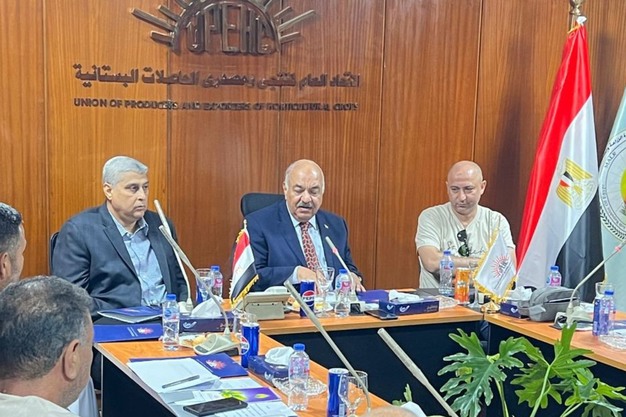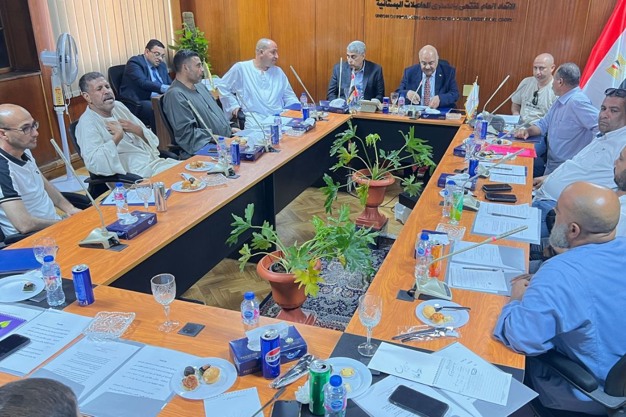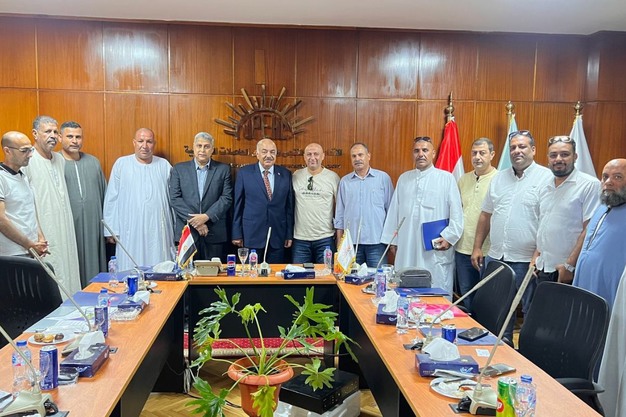Long overdue, Egypt's strawberry growers and exporters finally have an organization to unite them. The Strawberry Growers and Exporters Council was created this month, despite Egypt having been one of the world's leading producers and exporters of fresh and frozen strawberries for many years. According to Emad Mahdy, CEO of Al Fayruz Nurseries, "It's true that the organization came late, but we need it now more than ever."
The nurseryman explains: "We've had a strawberry growers' association for decades. It was the first in the Middle East and one of the first in the world. But we had to take the next step in terms of synergy and organization of the sector. Efforts were stepped up recently, with the support of the Ministry of Agriculture, to create the long-awaited council."

Mahdy continues: "We needed to come together, as growers, exporters, and government officials, because of the pressing difficulties and challenges facing the strawberry industry. Since 2019, Egypt has been the world's leading exporter of frozen and processed strawberries and is competing for second or third place in the export of fresh strawberries. Recently, however, we have been confronted with a number of problems at all stages of production and export. The production structure dominated by small farmers and cooperatives makes it impossible to address these issues without a consultation and decision-making body that engages all industry players, in addition to government and other stakeholders."
The council's constitutive declaration enumerates a long list of challenges threatening the strawberry industry in Egypt, as well as the council's areas of intervention, but the most urgent missions currently entrusted to the council are, according to Emad, "climate change, the deterioration in plant quality and the dumping that is dragging prices down."

"Growers are complaining about the deterioration in plant quality, due not only to climate change but also to the stranglehold of breeders' agents, who don't provide us with technical advise or the latest varieties despite the fact that Egypt signed the UPOV convention. It is now up to the Council to import plants to rigorous standards and distribute them to growers under the best possible conditions. The Council also has the mission of initiating and coordinating efforts with research institutions in Egypt to develop exclusively Egyptian varieties, adapted to our new climatic realities and which will enable us to emancipate ourselves from the heavy burden of rights to use international varieties and the ensuing disputes."
"There are also many areas for improvement in the practices of strawberry professionals in Egypt" continues Mahdy. "The role and immediate mission of the Council is to break with the anarchy that reigns in the industry. The tools are numerous, such as setting an official launch date for the campaign, establishing volume quotas for each destination country in line with its needs, introducing uniform packaging and naming standards, carrying out generalized quality and MRL audits, and setting up a price exchange. Upstream, at the production level, we have a battery of measures to implement at the national level in terms of farming operations."

Finally, the Council identified logistics as an emergency area for action, according to Mahdy. He elaborates, "More than 30% of the volume is lost between harvest and packing alone, we need to improve handling and storage of the fruit. The sector also suffers from the exorbitant costs of international transport, by sea, road, and air. The government is called upon to play a political role in resolving the problems we face with international transport and congestion at destination ports."
Mahdy concludes: "The Strawberry Growers and Exporters Council, chaired by Liwa Ashraf Elsharkawy (Liwa is an Egyptian military rank equivalent to Major General), is called upon to preserve Egypt's position on the international strawberry market and to draw on the successful experiences of similar bodies such as those in Spain, the Netherlands and Italy, or not far away in Morocco, as well as sister organizations in Egypt such as the citrus, potatoes or dates councils, which represent a model to follow."
For more information:
Emad Mahdy
Al Fayruz Nurseries
Tel: +201014040722
Email: emad_mahdy@hotmail.com

